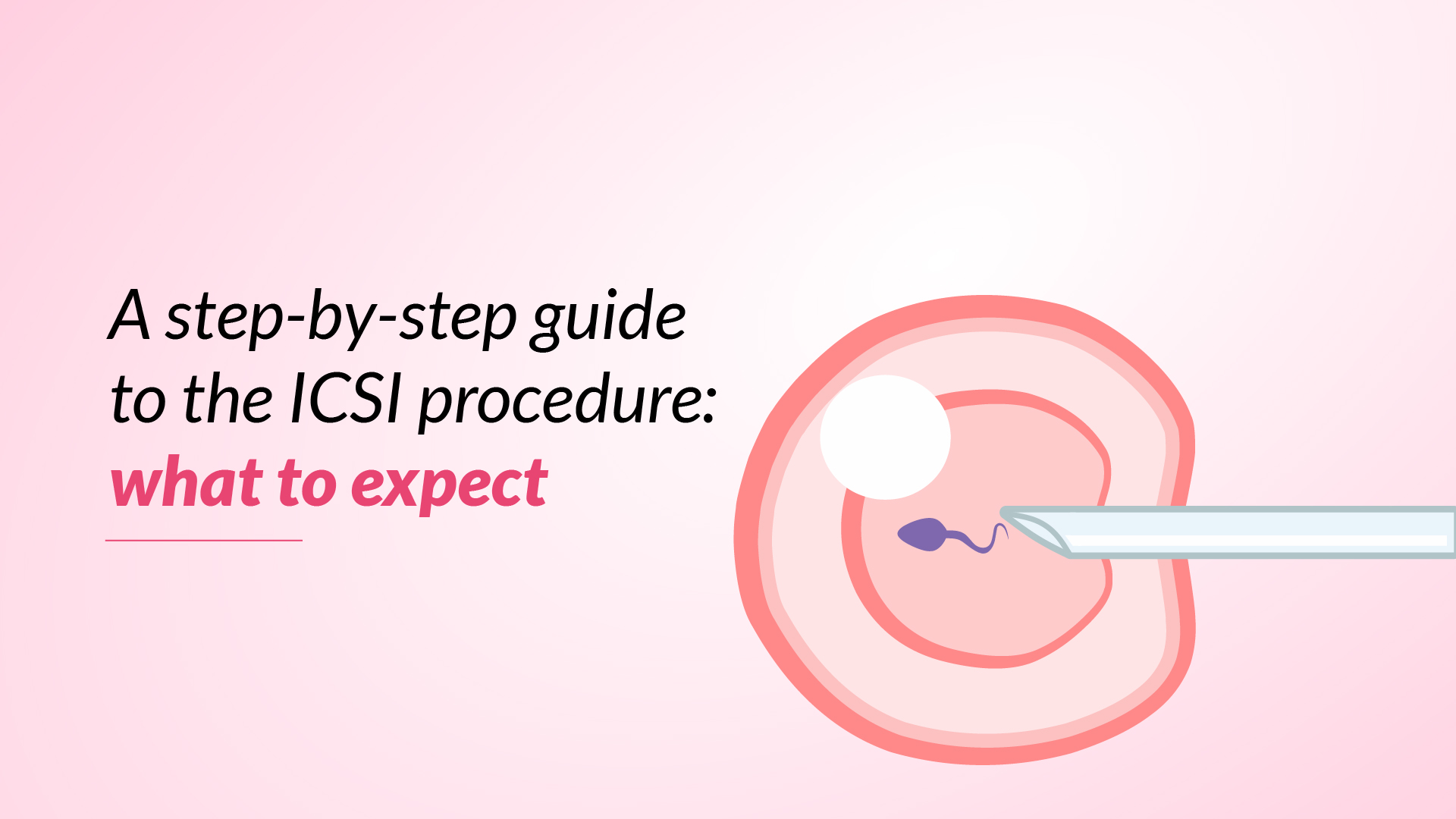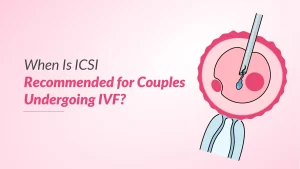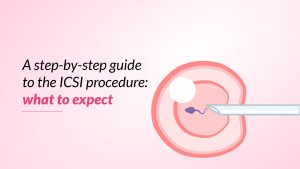Struggling with fertility issues can be an emotionally and physically draining experience for couples trying to conceive. If you’ve been exploring various fertility treatment options, you may have come across the term “ICSI.” This advanced assisted reproductive technology, known as Intracytoplasmic Sperm Injection, has become a game-changer for many couples facing male factor infertility or other fertility challenges. In this comprehensive guide, we’ll walk you through the ICSI procedure step-by-step, helping you understand what to expect and empowering you to make informed decisions about your fertility journey.
What is ICSI Treatment?
ICSI (Intracytoplasmic Sperm Injection) is a unique procedure that involves injecting sperm into a mature egg. This technique is designed to overcome specific male fertility problems, like poor sperm motility, low sperm count, or abnormal sperm morphology. By bypassing the natural fertilisation process, ICSI increases the possibilities of successful fertilisation and embryo development.
During an ICSI cycle, the female partner undergoes ovarian stimulation to generate multiple eggs, which are then retrieved through a minor surgical procedure. The male partner gives a semen sample, from which the embryologist carefully selects the healthiest sperm under a high-powered microscope. Each viable egg is then injected with a single sperm using a specialised needle, a process performed by skilled embryologists in a controlled laboratory environment.
Common Reasons Why Couples Might Turn to ICSI?
Couples may opt for ICSI treatment for various reasons, including:
- Male Factor Infertility: This includes conditions like low sperm number, poor sperm motility, or abnormal sperm morphology, which can make natural fertilisation difficult.
- Failed Fertilisation in Previous IVF Cycles: If traditional IVF has not resulted in successful fertilisation, ICSI can be an effective alternative.
- Unexplained Infertility: In cases where the reason for infertility remains unclear, ICSI can improve the chances of fertilisation.
- Genetic Reasons: Doctors may recommend ICSI for couples undergoing preimplantation genetic testing (PGT) to screen for specific genetic disorders.
ICSI Procedure Step-by-Step
The ICSI procedure involves several stages, each carefully orchestrated to maximise the chances of successful fertilisation and embryo development. Here’s a detailed look at the step-by-step process:
Pre-treatment Assessments
Before embarking on an ICSI cycle, you and your partner will undergo various tests and evaluations to assess your overall health and fertility status. These may include:
- Ovarian reserve testing (for the female partner)
- Semen analysis (for the male partner)
- Infectious disease screening
- Genetic testing (if applicable)
- Counselling sessions to discuss the process, risks, and potential outcomes
Your fertility specialist will review the test results and determine the best course of action, ensuring that ICSI is the appropriate treatment for your situation.
Ovarian Stimulation
To increase the number of mature eggs available for retrieval, the female partner undergoes a process called ovarian stimulation. This process involves administering a series of hormone injections, typically a combination of follicle-stimulating hormone (FSH) and luteinising hormone (LH), to stimulate the ovaries to produce multiple follicles (egg-containing sacs).
Your fertility specialist will observe your response to the medications through regular ultrasound scans and blood tests. This monitoring allows them to adjust the dosage as needed and determine the optimal timing for egg retrieval.
Egg Retrieval
Once these follicles have reached the desired size, the fertility specialist schedules an egg retrieval procedure. This procedure is carried out under light sedation or general anaesthesia.
During the egg retrieval process, your fertility specialist will use a thin, hollow needle guided by ultrasound imaging to aspirate the mature eggs from the follicles. The retrieved eggs are then carefully examined and graded by an embryologist.
Sperm Collection and Preparation
On the day of egg retrieval, the male companion will provide a fresh semen sample. In cases where the male partner cannot produce a sample on the day of the procedure, doctors can use a previously frozen sample.
The semen sample undergoes a process called “sperm washing” or “sperm preparation,” where the healthiest and most motile sperm are isolated and prepared for the ICSI procedure.
ICSI Fertilisation
In a specialised laboratory, the retrieved eggs are prepared, and each mature egg is carefully injected with a single, healthy sperm using a microscopic needle. Highly skilled embryologists perform this process under strict quality control measures.
After the injection, the fertilised eggs (now called embryos) are kept carefully in an incubator and monitored closely for signs of successful fertilisation and early embryo development.
Embryo Culture
The fertilised embryos are carefully cultured in a controlled laboratory environment for several days, allowing them to develop and reach the desired stage for transfer or freezing.
During this time, embryologists closely monitor the embryos’ growth and development, assessing their quality and viability.
Embryo Transfer & Embryo Freezing
Once the embryos have reached the appropriate stage of development, your fertility specialist will determine the best course of action: fresh embryo transfer or embryo freezing (cryopreservation).
Fresh Embryo Transfer:
- If a fresh embryo transfer is planned, one or more embryos (depending on your specific situation and the clinic’s guidelines) will be carefully transferred into your uterus using a thin catheter.
- This procedure is typically conducted without anaesthesia and is relatively painless.
- After the transfer, doctors may advise you to take progesterone supplements to support the potential implantation and early pregnancy.
Embryo Freezing (Cryopreservation):
- In some instances, your fertility specialist may recommend freezing the remaining embryos for future use, a process known as cryopreservation.
- This allows you to have additional opportunities for embryo transfer without undergoing another complete ICSI cycle.
- Frozen embryos can be thawed & transferred in a subsequent cycle, providing additional chances for pregnancy.
What is the Success Rate of ICSI Treatment?
The success rate of ICSI treatment varies and depends on several factors, including the age of the female partner, the underlying cause of infertility, and the overall health and quality of the eggs and sperm. ICSI treatment achieves successful fertilization in 50-80% of cases. The remaining outcome relies on the IVF process, particularly the successful implantation of the embryo into the uterus lining after transfer. Internationally, IVF success rates range between 40-50% per cycle, depending on the woman’s age and other individual factors.
It’s essential to note that success rates can vary significantly between fertility clinics, and discussing the specific success rates with your fertility specialist based on your circumstances is advisable.
What Factors Can Affect the Success Rate of an ICSI Cycle?
Several factors can determine the ICSI success rate, including:
- Age of the Female Partner: As women grow older, the quantity & quality of their eggs decline, which can impact the success rates of ICSI treatment.
- Cause of Infertility: The underlying reason for infertility, such as severe male factor infertility or diminished ovarian reserve, can affect the chances of success.
- Embryo Quality: The quality & viability of the embryos play a vital role in determining the ICSI success.
- Uterine Factors: Conditions such as uterine fibroids, polyps, or structural abnormalities can impact embryo implantation and pregnancy rates.
- Lifestyle Factors: Smoking, obesity, and excessive alcohol intake can negatively impact fertility and the success of ICSI treatment.
Your fertility specialist will carefully evaluate these factors and provide personalised guidance and recommendations to optimise your chances of success.
Suggested Read: How can I mentally prepare myself for ICSI?
How is ICSI Procedure Different from Fertility Treatment like IVF?
While ICSI is a specialised form of in vitro fertilisation (IVF), there are some key differences between the two procedures:
- Fertilisation Process: In traditional IVF, eggs and sperm are combined in a dish, allowing fertilisation to occur naturally. In ICSI, the doctor directly injects a single sperm into each mature egg, bypassing the natural fertilisation process.
- Indication: IVF is a more general fertility treatment used for various causes of infertility, while ICSI is specifically indicated for cases of male factor infertility or failed fertilisation in previous IVF cycles.
- Sperm Requirements: IVF requires a higher sperm count and better sperm motility, as the sperm must navigate and penetrate the egg on its own. ICSI can be performed with a very low sperm count or even surgically retrieved sperm.
- Success Rates: While success rates can vary based on individual circumstances, ICSI generally has higher fertilisation rates compared to traditional IVF, particularly in cases of severe male factor infertility.
It’s important to note that both IVF and ICSI share many similarities in the overall process, including ovarian stimulation, egg retrieval, embryo culture, and embryo transfer or freezing.
Find Hope and Solutions for Female Infertility and Male Infertility — Explore Our Comprehensive Services
IVF Treatment
IUI Treatment
PICSI Treatment
Fertility Preservation Service
Conclusion
The ICSI procedure has revolutionised fertility treatment for couples facing male factor infertility or other fertility challenges. ICSI has given hope to many individuals who may have struggled to conceive through traditional methods by providing a direct path to fertilisation.
While the ICSI process can be complex and emotionally demanding, understanding each step and what to expect can help mitigate some of the stress and uncertainty. Remember, your fertility specialist and healthcare team are there to guide you every step of the way, providing personalised care and support throughout your fertility journey.





























